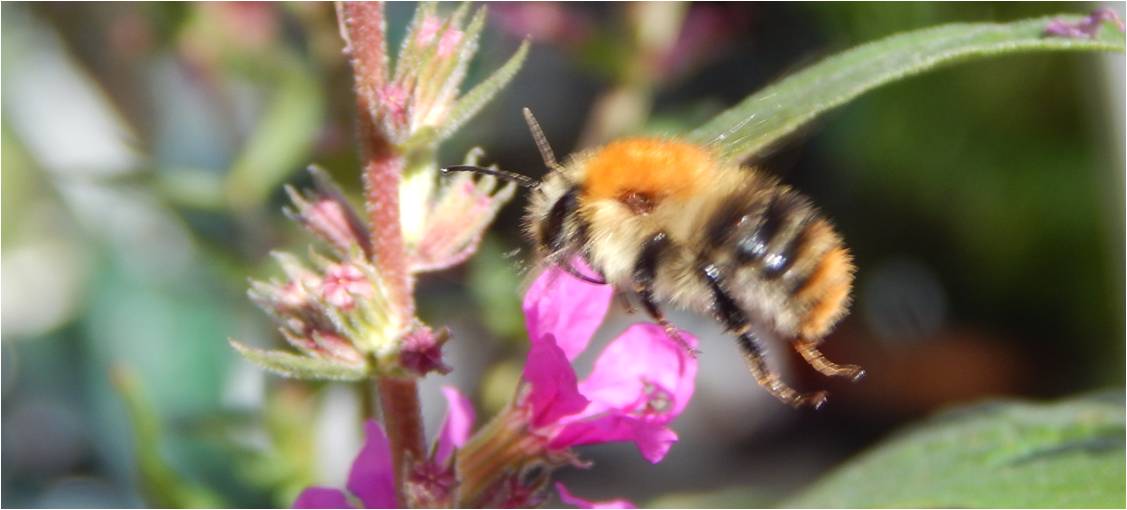Do Neonicotinoids Improve Crop Yield?
One thing is certain:
We never grew food without bees (and other pollinators), but at one time, we did grow food without pesticides!
A book called "The War on Bugs" explains the origins of the pesticide industry.....
|
"Seeing an opportunity to play upon fears from market demand, chemical companies declared war on the vile, profit-sucking, output-wreaking, arch-nemesis of the average American farmer - bugs. With precision, pesticide manufacturers delivered a "shock and awe" media campaign..... Will Allen's War on Bugs reveals how advertisers, editors, scientists, large scale farmers, government agencies, and even Dr. Seuss, colluded to convince farmers to use deadly chemicals, hormones, and genetically modified organisms (GMOs) in an effort to pad their wallets and control the American farm enterprise......" |
So, more recently..........
In October 2014, the US EPA (Environment Protection Agency) published some interesting research assessing the "Benefits Of Neonicotinoid Seed Treatments to Soybean Production"(1)

Some interesting findings came from the authors. For example:
74% of farmers using neonicotinoids seed treatment and foliar insecticide sprays reported no beneficial crop increase, or reported a decrease!
100% stated that despite the use of neonicotinoid treated seeds, their usage of sprays on the crops stayed the same or actually increased!
Page 9:
"In the summer of 2014, the North Central IPM Center (NCIPMC) collected information through a questionnaire and additional unpublished data on neonicotinoid seed treatment efficacy, target pests, and benefits from national research and extension experts on a number of crops. ……
Some key findings of the questionnaire were related to the perceived yield benefits of neonicotinoid seed treatments and the impact on the number of foliar insecticide sprays made to soybeans. When asked how the use of neonicotinoid-treated seeds affected soybean yields, 74% of respondents (14/19) responded that yield either stayed the same or decreased. All of the 5 respondents who indicated that seed treatments increased soybean yield were researchers working in the Southern U.S., specifically LA, MS, and TN (NCIPMC, 2014). When asked if the use of seed treatments affected the amount of foliar pesticide applications on soybeans, 100% of the respondents indicated that foliar sprays (both aerial and ground) either stayed the same or actually increased (NCIPMC, 2014)".
By page 10, the authors state:
"There are no clear or consistent economic benefits of neonicotinoid seed treatments in soybeans."
But most damming of all is the conclusion, which really begs the question, “what’s the point in farmers using neonics?”:
“This analysis provides evidence that U.S. soybean growers derive limited to no benefit from neonicotinoid seed treatments in most instances. Published data indicate that most usage of neonicotinoid seed treatments does not protect soybean yield any better than doing no pest control.”
So what about in other countries, such as the UK?
Last year, the use of neonicotinoids on oil seed rape was restricted.
Did the world fall apart?
Apparently not.
According to the HGCA (Home Grown Cereal
Authority) 2.7% of the crop was lost to flea beetles and of this, 1.35% was replanted
– leaving a reduction in Oil seed rape crop of just 1.35%. The HGCA note that the national picture suggests a modest impact of flea beetle on crops.
And so what have we learned? In my view, it confirms what I have always believed:
- the loss of bees and other pollinators through use of neonicotinoids poses a far greater threat to crop yield (not to mention the eco-system generally) than abandoning harmful insecticides.
Stop press!
A new study (2017) by Krupke et al, concludes:
"Planting of neonicotinoid-treated
maize poses risks for honey bees and other non-target organisms over a
wide area without consistent crop yield benefit"
Read about Krupke study
Refs:
(1) Copy and paste this link into your browser to see the research:
http://www2.epa.gov/sites/production/files/2014-10/documents/
benefits_of_neonicotinoid_seed_
treatments_to_soybean_production_2.
pdf#page=9&zoom=auto,-72,733